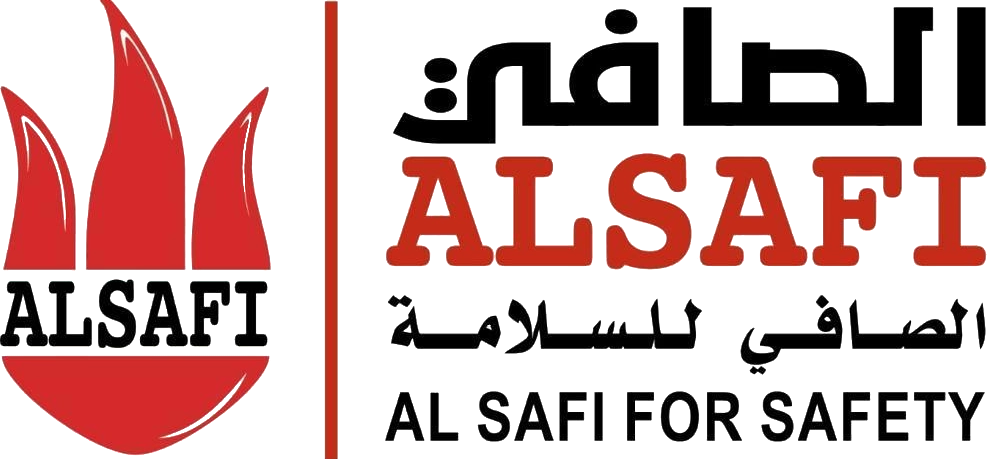Municipality Requirements for Restaurants | How Can Al-Safi Company Help You?

The municipality seeks to raise the quality standards of restaurants by imposing a set of rules and regulations that ensure public health protection and consumer safety. These rules are known as the municipality requirements for restaurants, which are basic regulations that restaurant owners must adhere to, starting from properly setting up the kitchen, ensuring hygiene and storage measures, and training staff on food safety practices.
In this article, we will explain what the municipality requirements for restaurants are. Compliance with these rules is not only a legal obligation but also a way to enhance customer trust and maintain the restaurant’s reputation among competitors.
What are the Municipality Requirements for Restaurants?
Below, we outline the municipality requirements for restaurants regarding location, restaurant elements, and ventilation as follows:
Location Requirements:
The following are the requirements related to restaurant locations:
- The restaurant must be located in commercial centers, on a commercial street, or in areas designated in approved plans.
- The restaurant should be at least 25 meters away from gas shops.
- The restaurant should be approximately 30 meters away from fuel stations.
- The restaurant area should not be less than 65 square meters.
- For restaurants serving Mandi meat, the area should not be less than 100 square meters, divided as 65 sqm for the main space and 35 sqm for Mandi preparation.
Restaurant Elements:
The following are the requirements regarding restaurant elements:
- The washing and preparation room should be at least 9 sqm and separated from the kitchen.
- The kitchen should be less than 15 sqm, separated from the dining hall, and equipped with proper ventilation.
- The dining hall should be at least 30 sqm if food is served inside the restaurant.
- The dining hall should be furnished with appropriate tables and may be divided with partitions no higher than 1.5 meters, or arranged for Arabic-style seating.
- Handwashing sinks and toilets must be available, with one toilet and sink for every 1–10 people.
- Toilet area should be at least 1.2 sqm; the toilet should be Arabic-style. If more than one is needed, Western-style toilets should be available, along with separate toilets for women if families visit the restaurant.
- The restaurant must have a storage room of at least 9 sqm.
Ventilation Requirements:
Here are the ventilation requirements inside restaurants:
- Restrooms, preparation, and washing rooms should be ventilated 15 times per hour.
- Kitchen rooms should be ventilated at least 35 cubic meters per hour, with exhaust fans installed above them.
- Storage rooms should be ventilated at least 6 times per hour.
Municipality Requirements for Cloud Kitchens
The following are the municipality requirements for cloud kitchens:
- Provide one parking spot for every 70 sqm.
- Designated parking for trucks and loading/unloading must be within the site boundaries.
- A dedicated area for receiving and dispatching goods must be available at the storefront.
- At least one reception desk should be provided, or a counter made from easy-to-clean materials.
- The reception counter must be at least 90 cm high.
- Provide waiting chairs for delivery drivers.
- A dedicated area of at least 4 sqm for packing, sorting, and preparing products must be available.
How Municipality Requirements Help Your Restaurant Succeed
Here’s how compliance with municipality requirements can help your restaurant succeed:
- They guide you on how to properly open and design your restaurant to fit your business.
- They ensure kitchen and restaurant design allows smooth food handling.
- They explain how to obtain the municipality license and remind you to register for VAT.
- They ensure legal compliance and help you manage your restaurant efficiently for success.
Comparison of Municipality Requirements Before and After Update
The Ministry of Municipal and Rural Affairs and Housing defined restaurant requirements including facade length and area, but these were updated in December 2019 to align with the local market and ease business management.
Here’s a comparison of the requirements before and after the update:
- Facade length was previously required but this condition was removed.
- Minimum restaurant area was 65 sqm, Mandi restaurants 100 sqm, and kitchen 200 sqm. Now, area is based on investment size and investor capacity.
- Kitchens on upper floors were previously prohibited; now allowed with CCTV monitoring.
- Separate entrances for singles and families were previously required; now a single entrance for all is allowed.
Al Safi Company’s Role in Implementing Municipality Requirements
Municipality requirements are essential standards for restaurant owners, and to implement them properly, you should consult a specialized security and safety company.
Al Safi Company is one of the best companies to help implement municipality requirements for restaurants, for the following reasons:
- Provides a wide range of the best fire safety and prevention systems.
- Has a specialized team of technicians for installing fire prevention systems, with extensive experience in security and safety.
- Offers expert consulting to ensure restaurants comply with all municipality requirements.
- Assists in obtaining and renewing restaurant licenses.
- Provides services at very competitive prices compared to other companies in the field.
Do not hesitate and contact us to help implement municipality requirements and set up your restaurant according to the highest standards.
In conclusion, we have explained the municipality requirements for restaurants, which must be followed by owners to avoid legal issues and to enhance trust with customers, especially given the large number of restaurants in the Kingdom.
Frequently Asked Questions About Municipality Requirements for Restaurants
Does the municipality require specific kitchen design and storage areas in restaurants?
Yes, kitchens must be equipped with proper ventilation and separate storage areas.
How do municipality requirements enhance consumer trust?
Compliance ensures safe and healthy food for customers, increasing their trust and restaurant patronage, supporting business success.



